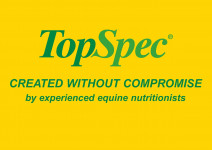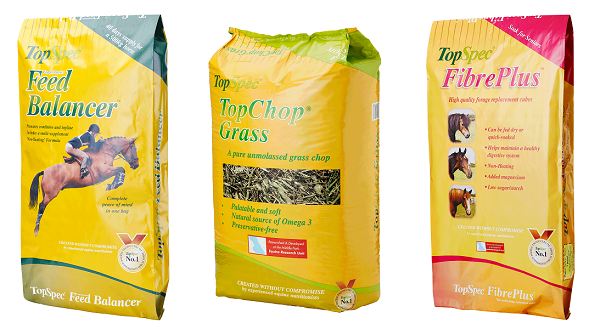Posted: 5th October 2020 | Back to news feed

There are several factors to consider when feeding an older horse, such as his activity level, the environmental conditions, and any health concerns. Whilst he remains in good health, his diet may not need to change. However, as certain problems develop, alterations to his regime are more likely to be necessary. These health problems can include:
(1) Reduced dental function:
Over time the grinding surface of the teeth wear down and horses may suffer from fractured or missing teeth, diastema (gaps between the teeth) and periodontal disease. A six-monthly visit from a qualified Equine Dental Technician or vet is essential. However, hay replacers will inevitably become necessary.
A decline in dental function is often highlighted during winter, as horses are relying on conserved forage, which is more difficult to chew. When they are no longer able to chew long fibre effectively, it often leads to weight loss and loose droppings.
(2) Musculoskeletal problems:
A culmination of wear and tear can result in problems such as arthritis. As a result, reduced activity, muscle wastage and stiffness can be seen. Regular, gentle exercise and plenty of turnout can help. Supplementation with the scientifically recommended level of glucosamine (10g/500kg horse/day), as well as MSM, can also be beneficial.
(3) Hormonal disease:
Pituitary Pars Intermedia Dysfunction (PPID) or Cushing’s is a common hormonal disorder in older horses. Insulin dysregulation is often associated with PPID and increases the risk of laminitis. Therefore, total diets should be low (<10 - 12%) in Non-Structural Carbohydrates (NSC) i.e. sugar and starch. Muscle breakdown can also develop as PPID progresses, so high quality protein is essential.
(4) Immune system compromise:
Age, as well as PPID, can affect immune function. To provide nutritional support for the immune system, diets should contain optimum levels of certain micronutrients particularly antioxidants such as vitamin A, E and selenium. Mannan Oligosaccharides (MOS) have also been found to be beneficial, whilst vitamin C has a role to play in lung health.
Dietary recommendations:
Forage
Forage is the foundation of any horse’s diet and older horses are no exception.
A constant supply of fibre is essential to maintain a healthy digestive system, with optimal gut motility and balanced hindgut microflora. As dental function declines, it becomes increasingly important to provide suitable fibre sources.
Haylage can be easier for an older horse to manage, when compared to a mature, coarse hay. Straw-based chops should be avoided but soft, short chopped grass can be used as a hay/haylage replacer for a short period.
However, fibre in a pre-ground form rapidly becomes essential, and can be supplied by using a mash that is high in fibre or soaked fibre cubes.
Hard Feeds
- Healthy older horse in good condition:
Horses that can maintain their level of work, without any significant health concerns, may be able to continue on their previous diet providing it is fully-balanced. The addition of a supplement including glucosamine and MSM may be sensible at this stage. Alternatively, there are top specification feed balancers available that include the recommended level of glucosamine and provide a very economical solution.
- Overweight older horse:
With age, workload will usually reduce and eventually lead to retirement. This means that if they remain healthy, certain older horses can be prone to weight gain.
Feeding a top specification ‘lite’ feed balancer or multi-supplement is ideal. The best contain both general purpose and specialised supplements, including those for hooves, bone, muscle, blood, joints, the immune system and the digestive tract.
- Underweight older horse:
As health issues develop, many older horses are likely to experience weight loss.
Hard feeds should be nutrient-dense and not exceed the horse’s maximum meal size e.g. 2kg for a 500kg horse. A top specification, conditioning feed balancer will supply amino acids, vitamins, minerals, trace elements and yeast products, and will improve the utilisation of the rest of the diet.
Most top specification, conditioning feed balancers contain high quality protein sources. Protein promotes muscle development and topline, which frequently wastes away in older horses.
As older horses are gradually able to eat less fibre, and therefore may suffer from disturbances in the hindgut microbial balance, feeds that are high in starch and sugar should be avoided.
Adding a low sugar/starch, conditioning blend to a top specification feed balancer will provide a very successful solution for older horses.

Article supplied by nutritionists from the TopSpec Multiple Award-Winning-Helpline. They can be contacted, free of charge, on 01845-565030.
The Equestrian Index newsfeed is compiled from articles submitted by advertising members and expresses the opinions of those members. Watsons Directories Ltd shall not be held liable for any inaccuracies or mis-statements therein.